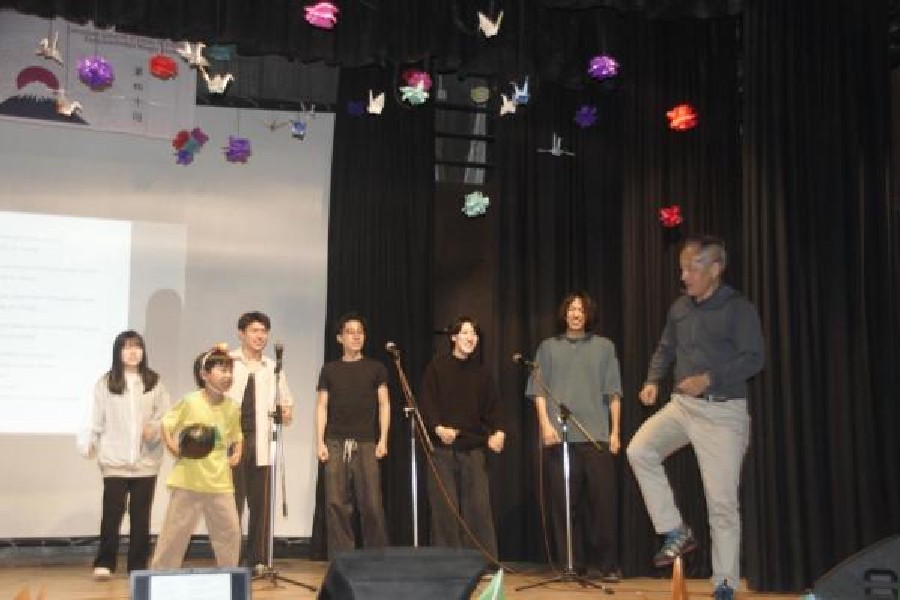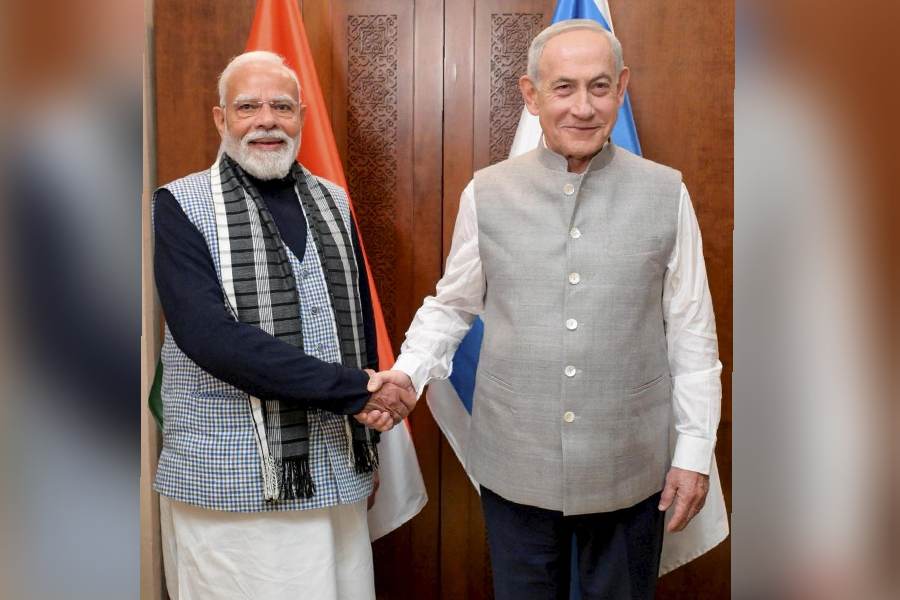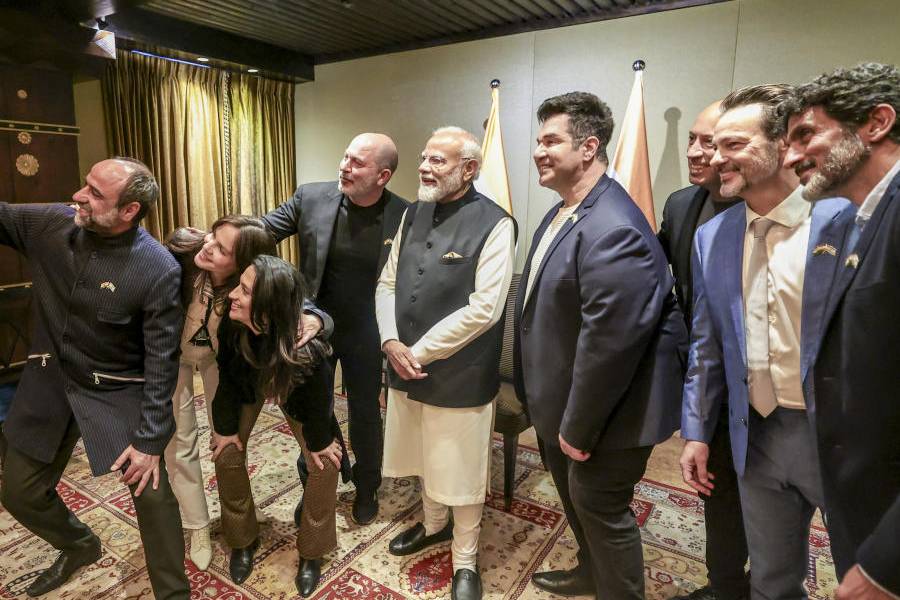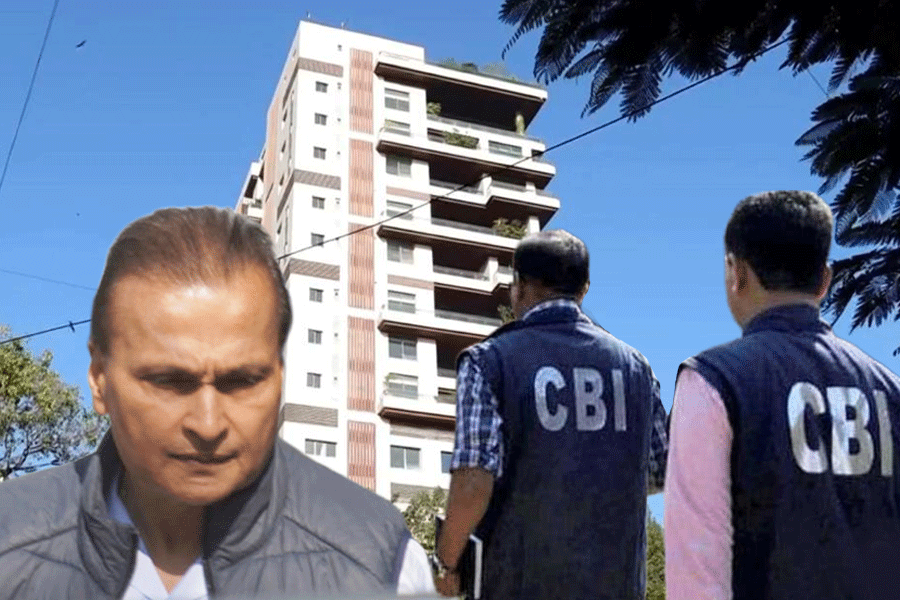Ye dosti hum nahin torenge” (Never shall we break this friendship), Katsunori Ashida, the deputy consul general of Japan, sang to celebrate the 40th In Nichi Bunkasai which took place recently at Rabindra Okakura Bhavan, an address which is itself a citadel of Indo-Japan friendship, being named after Tagore and Japanese art historian Okakura Tenshin.
In Nichi Bunkasai — which literally means Indo-Japan cultural festival, with nichi meaning the sun and therefore standing for the land of the rising sun — started in 1985 to celebrate Indo-Japan relations through cultural exchange. “There were just 10-15 of us at the start. Now we have grown to over 250 members,” founder Kazuko Nigam told The Telegraph. The elderly lady, who teaches Japanese at Ramakrishna Mission Institute of Culture, has been the chief patron of the organisation from the start.
Organised by the Nihongo Kaiwa Kyookai Society (NKKS), the event was supported by the consulate general of Japan and Paschimbanga Bangla Akademi. The consulate general of Japan in Calcutta, as Tamalika Nag, one of the two comperes, pointed out, is close to 120 years old, having opened doors in March 1907, and is one of the oldest Japanese diplomatic missions in the world. Ashida, the chief guest, not only sang but also addressed the audience in Hindi, underlining the importance of language in bridging gaps between communities and strengthening friendships.
“NKKS has had a long and beautiful journey of connecting the two countries through language and culture,” said Tamalika, president of the 27th India-Japan Student’s Conference, one of many events organised by NKKS.
The festival started with a recital of Rabindranath Tagore’s song Pran bhoriye trisha horiye. The Bard had visited Japan thrice, the first time in 1916, after which he wrote a travelogue called Japan Jatri in 1919. “NKKS translates our popular songs into Japanese and sings bilingually,” said Sabarno Sinha, the other compere and the 28th IJSC president. Their renditions of Bengali folk songs in Japanese entertained the audience as did the old Hindi film hits, such as Mera juta hai Japani, Chalte Chalte and Made in India, that were presented by Nigam and other NKKS members in both Hindi and Japanese.
The programme incorporated elements of contemporary popular culture as well, thereby connecting with young audience members. When the choir started to sing Wasureji no kotonoha (Words Ne’er Forgotten) several spectators immediately recognised it as the theme song of Grimms Notes, an online role-playing game published by Square Enix in 2016. The audience tasted the flavour of Japanese humour, too, through some games presented by students of Momoyama Gakuin University, in which the audience was encouraged to participate. The team of four students and a teacher was on an exchange visit to India from the university in Osaka. Members of the Japan Club, led by Hitoshi Kawano, presented a funny Japanese song, Oni No Pantsu, which translates to Demon’s shorts.
NKKS president Babli Choudhury along with five members, participated in the comedy Oishi Doku that left the audience in splits. An Indian and a Japanese student put up an Indian classical dance performance. Deputy consul general Ashida captured key moments on his phone.
The programme wrapped up with a performance of Hanagasa Ondo, a form of folk dance from northeast Japan, and the NKKS theme song. Sumana Dey, the NKKS vice-president, delivered the vote of thanks.










